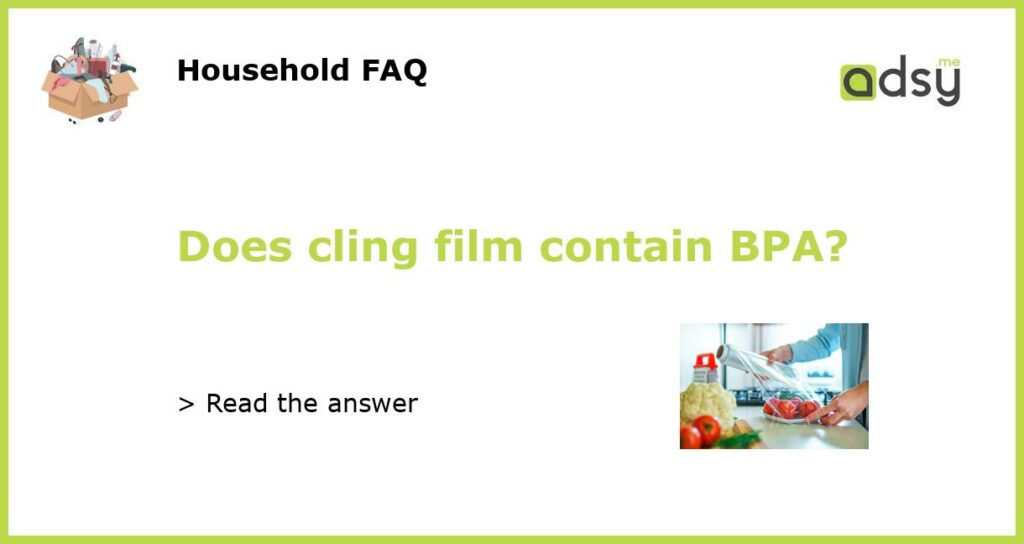What is BPA and why is it a concern?
Bisphenol A (BPA) is a chemical used in the production of some plastics, including food packaging. It has been linked to several health concerns, including reproductive disorders, heart disease, and cancer. BPA can seep into food or drink when containers made from it are heated, scratched, or damaged. As a result, many people are wondering whether cling film, a common plastic wrap, contains BPA and whether they should avoid using it.
What is cling film?
Cling film, also known as plastic wrap or food wrap, is a thin plastic film that is commonly used to cover and store food. It is made from a variety of materials, including PVC, LDPE, and LLDPE. Cling film’s main purpose is to create an airtight seal around food, helping to preserve its freshness and prevent contamination from bacteria and other microorganisms.
Does cling film contain BPA?
The short answer is no, cling film does not contain BPA. In fact, BPA is banned for use in the production of all food and drink packaging in the European Union, including cling film. Instead, cling film is typically made from low-density polyethylene (LDPE) or polyvinylidene chloride (PVdC), both of which are considered safe for food contact. However, it is important to note that PVC cling film, which is less common, may contain phthalates, which have also been linked to some health concerns.
Is cling film safe to use?
While cling film does not contain BPA, some people may still have concerns about its safety. For example, LDPE cling film can release chemicals such as hexanal, benzene, and styrene, particularly when it is heated. These chemicals are not harmful in low doses, but they can be toxic if consumed in high amounts. Additionally, PVC cling film may contain phthalates, which have been linked to reproductive and developmental problems in animals.
What are the alternatives to cling film?
If you are concerned about the safety of cling film or simply want to reduce your plastic use, there are several alternatives available, including:
- Reusable food storage containers made from glass or stainless steel
- Beeswax wraps, which are made from cotton fabric coated with beeswax, jojoba oil, and tree resin
- Silicone food bags, which can be washed and reused many times
By choosing one of these alternatives, you can help reduce your plastic use and limit your exposure to potentially harmful chemicals like BPA.






